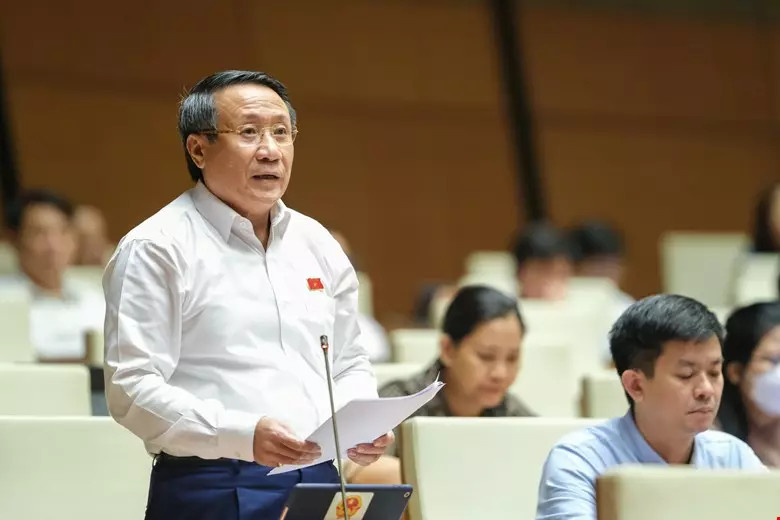
Ha Sy Dong, a National Assembly deputy, and deputy chair of Quang Tri province, said he agreed with the conclusion that bad debt settlement still contains risks and bad debt may increase.
The “easy and cheap money” policies brought certain effects, but they also caused adverse effects.
A considerable part of the easy money flow has been pouring into risky assets, causing bubbles in some business fields, such as real estate, securities, ‘three-no’s’ (no credit rating, no mortgaged assets and no guarantee) bonds and many other financial assets.
The stock market started going up in early April, hitting the 1,500-point area, a sharp increase of 250 percent. But from that moment to mid-May, the market slid continuously with the index down to 1,200 points. Around VND1.2 quadrillion “evaporated” and market liquidity dropped to VND16 trillion, much lower than the peak of VND50 trillion.
Dong pointed out that from March 2020 to the end of April 2022, foreign investors’ net sales reached VND68 trillion, or $3 billion. From the beginning of this year to the end of April, investors’ net sales were VND4.4 trillion, or $200 million.
The question is whether cheap money flow pumped into circulation by the central bank is heading for the stock market in particular, and real estate and other financial asset markets.
How does the financial leverage that investors use work? What is the current level of bank bad debt in these risky areas, and how much will it increase in the near future?
According to Dong, real estate, securities and finance and banking service sectors have been making fat profits during the pandemic.
The state budget collections from these fields have soared, offsetting the decrease in collections from the production sector. This is why state budget collections are high, while the economy and businesses are facing difficulties because of the pandemic.
The consequence is that risks are accumulating in the financial and monetary market.
In addition to debts restructured in accordance with the State Bank of Vietnam’s Circulars 01, 03 and 14, bad debt pressure also comes from the non-production sector because of changes in policies.
He warned that Vietnam has been behind the rest of the world and the region as deployment of the government’s financial support package under Resolution 43 is going slowly. The effectiveness of the package may not be clearly seen before high inflation pressure appears.
To avoid exchange rate and capital outflow risks, according to Dong, interest rates will have to increase. This, plus input material price increases, may lead to high inflation when total demand recovers strongly.
“This requires the State Bank to be more careful in regulating the money supply, especially through controlling the ‘credit valve’ for the economy".
“At the same time, it may also be necessary to consider an earlier contraction and a earlier end to the loosened fiscal policy than initially planned,” he said.
As such, the bad debt situation shows that the economy is still facing risks and the possibility of the bank bad debt increasing.
Dong believes that it is necessary to extend the application of Resolution 42 on piloting the bad debt settlement of credit institutions until 2023 to avoid the ‘legal gap’, while waiting for the legal framework on bad debt settlement to become convincing.
Trinh Xuan An, a National Assembly deputy from Dong Nai, commented that Vietnam’s capital market is very fragile, so it is necessary to closely watch and heavily punish the behaviors of price manipulation, and not criminalize economic relations.
He said that it’s necessary to review policies applied to these important markets to avoid over-loosening or over-tightening, which will affect capital mobilization channels of the economy.
Thu Hang